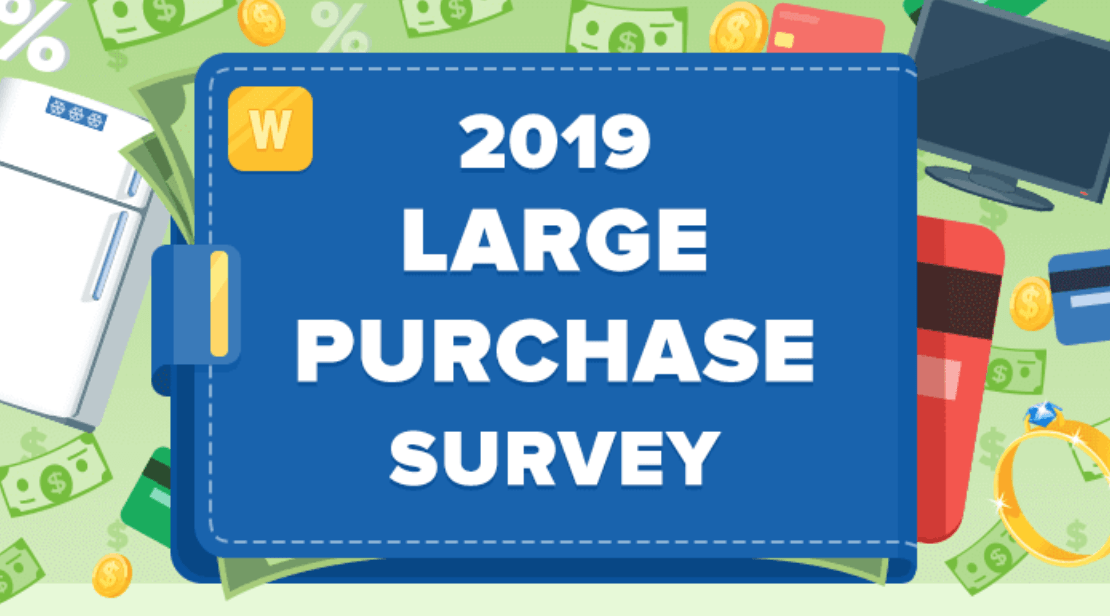
Personal Finance News
36% of Respondents Admit to Maxing Out Credit Cards on Large Purchases
When you make a large purchase, do you turn to plastic or cash? That’s what a new survey by the personal finance site WalletHub sought to find out. Additionally the study found that many Americans run the risk of maxing out their credit cards when making large purchases.
First, WalletHub asked what respondents considered to be a “large purchase.” Surprisingly the top answer was “over $100,” with 30% of those surveyed selecting that as their definition. However “over $250” and “over $500” weren’t far behind, receiving 27% and 25% of the vote respectively. Lastly a still-sizeable 18% defined a large purchase as being “over $1,000.”
Next, the survey found that, when it comes to making large purchases, credit cards were the preferred form of payment. 55% of respondents reported using credit for such purchases, while 32% opted for debit cards. While plastic clearly dominates, 10% of those surveyed said they mostly used cash for big buys and 3% still used checks. Interestingly, when asked why these forms of payments were their favorite, 46% of credit card users said that wanting to take advantage of rewards was a key factor. On the other hand the majority (57%) of debit devotees cited the desire to avoid credit card debt as their reason for choosing the other plastic. Similarly 52% of those paying with cash or checks also said they feared credit card debt, hence their old-fashioned options.
Speaking of avoiding debt, one-third of those surveyed said they worried about maxing out their credit card or overdrawing their accounts when making large purchases. Despite that fear, 36% of respondents said they had maxed out cards due to sizeable purchases in the past. In fact 12% report doing so more than once.
Beyond the debt element that often comes into play when credit cards are maxed out, another concern is that reaching that credit limit can also hurt your credit. That’s because credit utilization makes up 30% of FICO credit scores. Because of this experts suggest you should only use as much as 30% of your credit limit on any given card — although the lower your percentage, the better.
A few other interesting tidbits from the latest WalletHub survey were that retirees are 21% more likely than current workers to use credit cards for large purchases and were 75% less likely to worry about maxing out their cards. Also fascinating was that Republicans were found to be 70% more likely to use cash for large purchases than Democrats. That said it should be noted that WalletHub’s findings were the result a 500-person survey, which is fairly low. Still this survey is another reminder that credit utilization is important and should be minded. Furthermore paying interest on large purchases is never a favorable alternative to saving up cash and paying in full. But, as long as you can pay off your balance before interest hits (and hopefully earn some rewards for yourself at the same time), credit cards can still be a good option.





